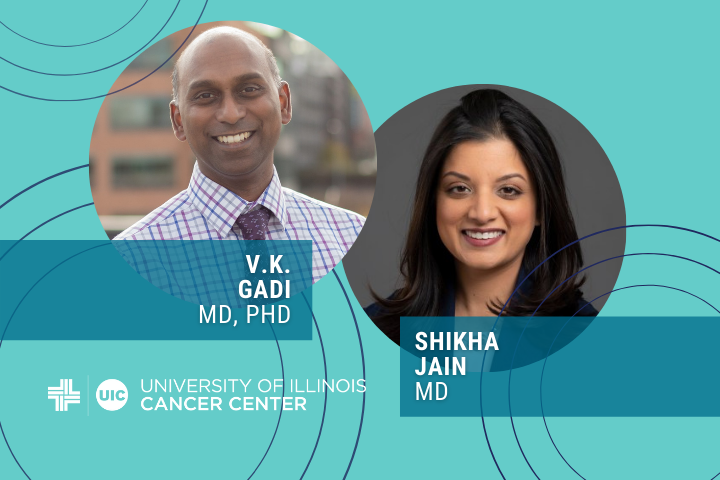
COVID-19 infections are rising due to the Delta variant, prompting University of Illinois Cancer Center members to educate patients about keeping the virus at bay and their cancer care on-track amid the seemingly endless pandemic.
“The immune symptoms of some cancer patients are compromised, and with the more contagious Delta variant, there’s a higher risk of getting sick than [there was] a year ago,” said Dr. Shikha Jain, Assistant Professor of Hematology and Oncology and Associate Director of Oncology Communication and Digital Innovation at the Cancer Center. “The Delta variant is much more contagious, and there is some evidence that it may cause more serious symptoms. Rules that applied to the pandemic 18 months ago are not the same as today.”
Many of Jain’s patients are worried about the Delta variant and how it might impact their cancer treatments. She allays their fears with the most accurate medical information available, especially around vaccinations.
“The majority of my patients have been vaccinated, and I tell them they still have to be cautious. Even though they are vaccinated, they may not have mounted as robust an immune response as an individual who is not immunocompromised,” Jain said. “The vaccines continue to be the most effective way to prevent hospitalizations and reduce the change of contracting the disease. Wearing masks in public is a second layer of protection I also recommend consistently to all of my patients.”
Jain has shared her knowledge of COVID-19 with media outlets including FOX32 Chicago.
While the majority of people are familiar with COVID-19 and standard prevention protocols, many are not as educated about the Delta variant, said Cancer Center member Dr. VK Gadi.
“The literacy with the Delta variant is pretty low,” said Gadi, Associate Director of Translational Medicine at the Cancer Center. “As providers we are being very cautious, as we don’t know yet what it means for our patients. We are fortunate that Illinois has a good vaccination rate, because we have to take this new variant seriously.”
Cancer is not an elective disease, Gadi added. He discusses COVID at length with his patients, providing various scenarios on how their treatments can be safely administered.
“When we explain the information we’ve learned over the past several months to our patients they are confident that we are doing what is best for them,” he said.
